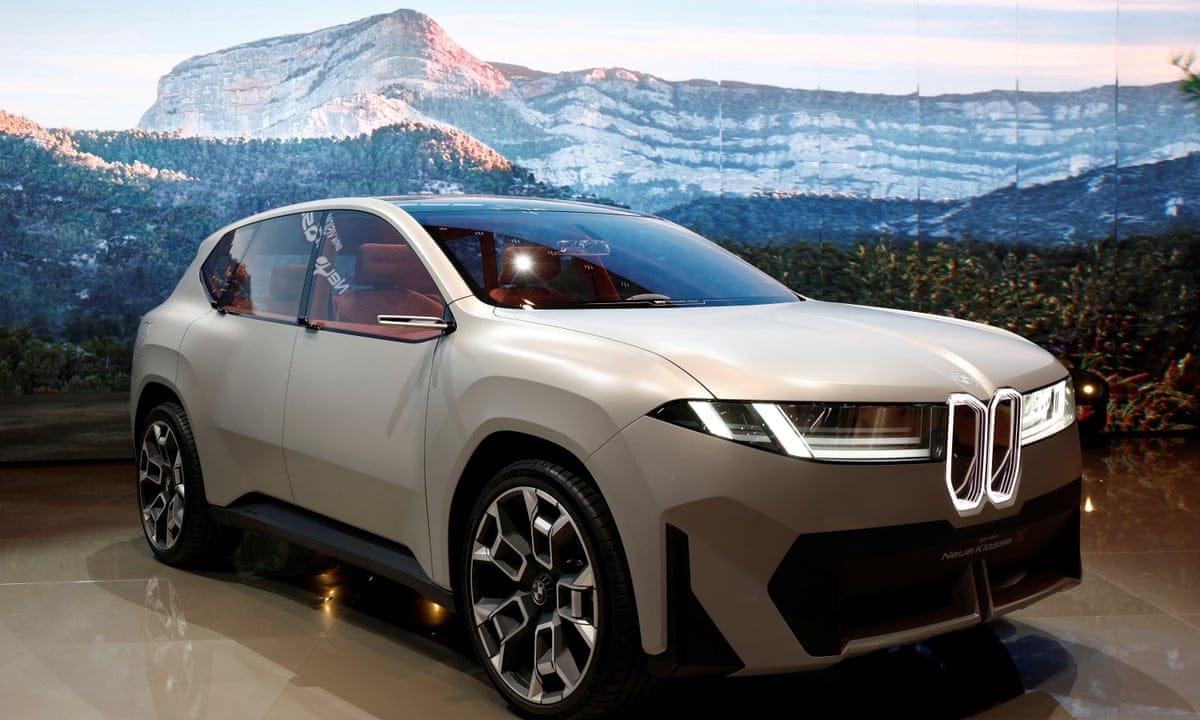The EU's plans for phasing out traditional internal combustion engines by 2035 have sparked concern among industry leaders as European car manufacturers face intensified competition from China in the electric vehicle sector.
In a statement at the Paris motor show, Oliver Zipse of BMW warned that this deadline "is no longer realistic," suggesting it could jeopardize Europe's automotive heartland. He argued these measures would likely lead to significant downsizing within the industry based on current projections.
European auto manufacturers are actively demonstrating their offerings at Paris, a key event in the calendar year for this sector. Notably, Chinese brands represent only one-fifth of exhibitors here compared with 2022 when they made up half. BMW is highlighting its lineup of electric vehicles—15 to be precise—at this time's showcase.
Carlos Tavares from Stellantis voiced concerns over proposed tariffs on Chinese cars, suggesting such measures would prompt Beijing-based firms to relocate their manufacturing operations within Europe in direct competition with home brands. He indicated imminent decisions regarding the future of UK plants amid negotiations around government electric vehicle mandates and hinted at potential closures if these quotas remain unaltered, referencing recent warnings from Stellantis's June statement about its Vauxhall factories in Ellesmere Port and Luton.
Tavares also indicated that Chinese brands would likely seek cost-effective production locations elsewhere within Europe—specifically mentioning Hungary as a potential site where BYD is already gearing up to establish an assembly facility, following Viktor Orban's efforts for foreign investment from Beijing.
European car manufacturing giants once held global admiration but are now grappling with challenges like decreased demand and lagging adaptation in the face of growing competition primarily from China—a scenario where they were previously dominant.
BMW's pushback against escalating environmental goals has unsettled officials at Brussels, after a previous disagreement over similar phase-out timelines for internal combustion engine vehicles seemed to have been resolved last year when Germany managed extra concessions in negotiations with EU representatives. This agreement now includes provisions that new petrol and diesel cars can be sold past the 2035 deadline if they utilize alternative fuels, potentially complicating further discussions about environmental regulations within Europe's automotin industry.
Read next

Ryanair plane had only six minutes of fuel upon Manchester landing, records show
Flight Narrowly Avoids Disaster After Storm Diversion
An inquiry has been launched after a Ryanair flight, struggling against severe winds during storm Amy last week, landed at Manchester Airport with only six minutes’ worth of fuel remaining.
The aircraft had been transporting passengers from Pisa, Italy, to Prestwick, Scotland, on

"Qantas customer data for 5 million exposed as hackers release info post-ransom deadline"
Hackers Leak Personal Data of 5 Million Qantas Customers on Dark Web
A cybercriminal group has released personal records of 5 million Qantas customers on the dark web after the airline did not meet their ransom demand.
The breach is part of a larger global incident affecting over 40 companies,

Investors flee record-high UK stocks as EU set to hike steel tariffs
Investors Withdraw Record Sums from Equity Funds Amid High Market Valuations
Data reveals that investors in the UK have withdrawn an unprecedented amount of money from equity funds over the past three months, driven by concerns over soaring stock market valuations.
According to the latest figures from Calastone, the largest

